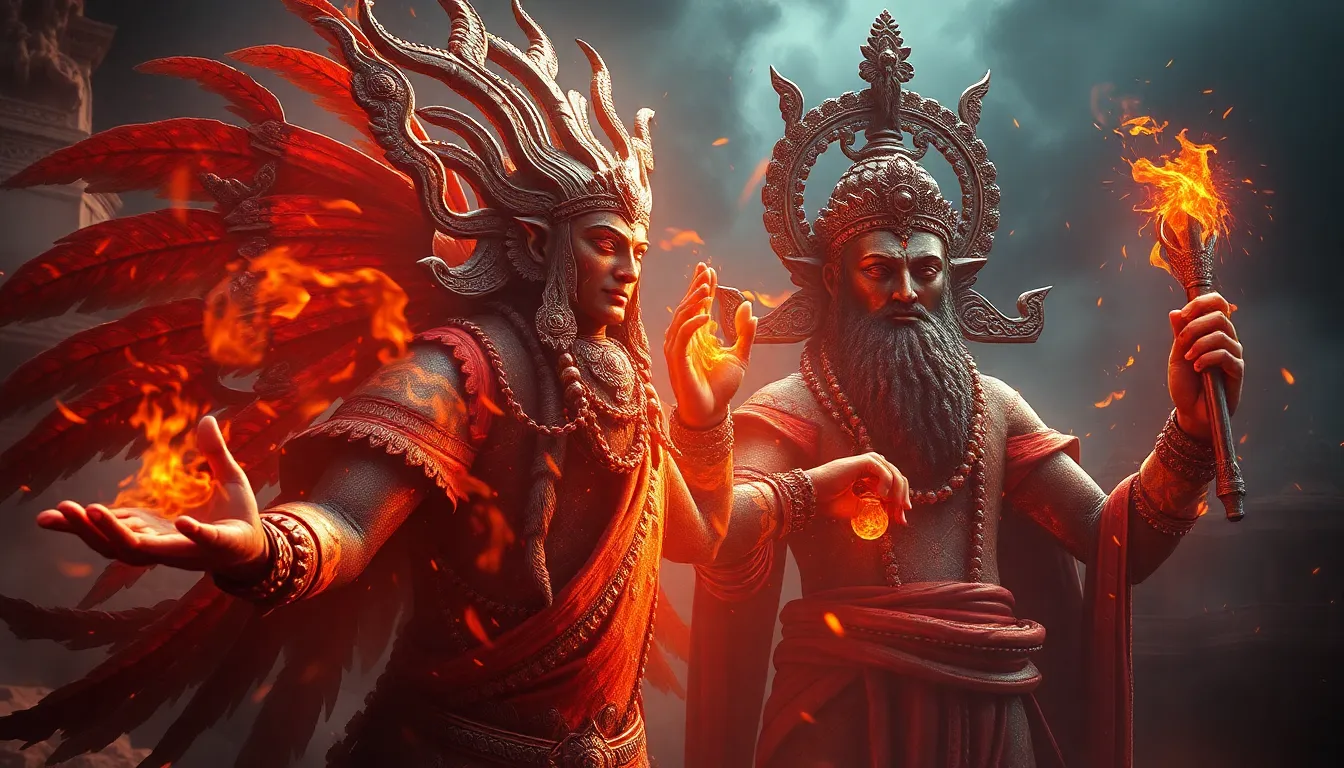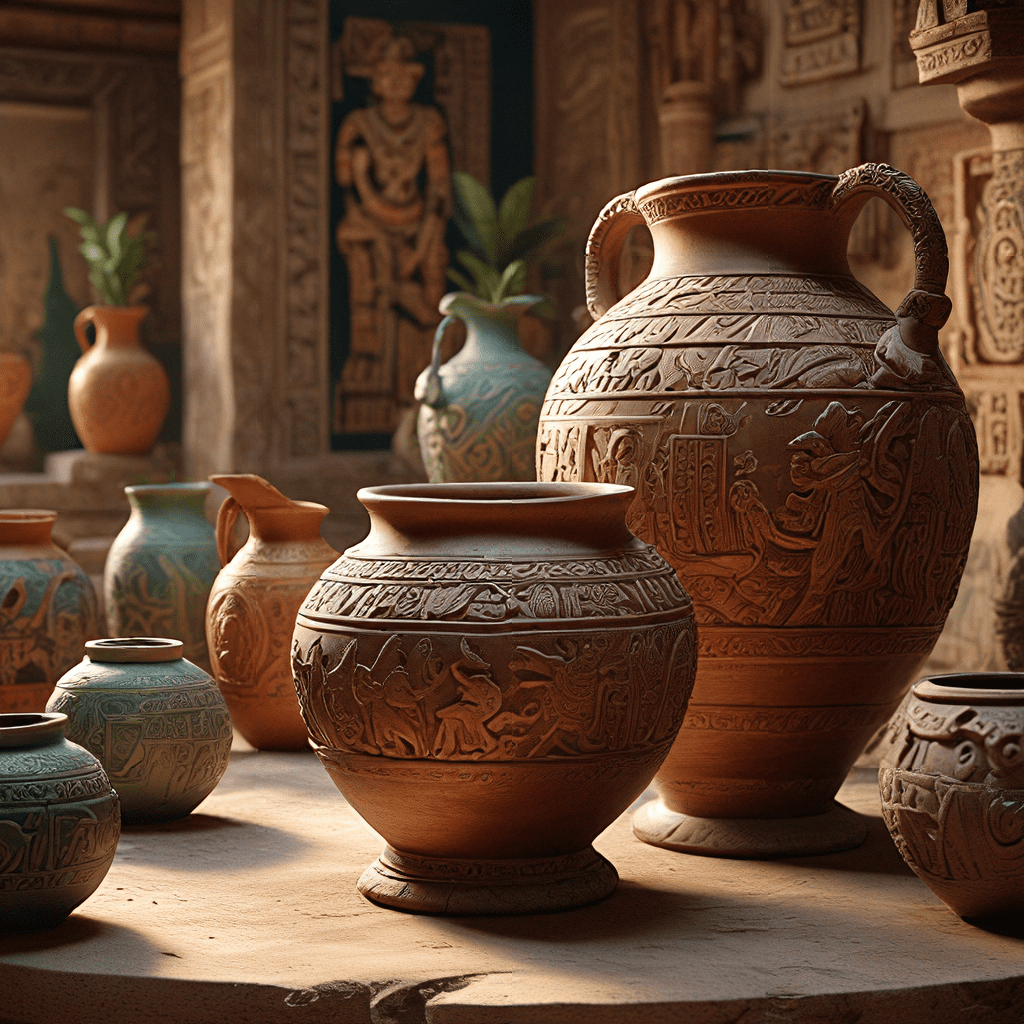The Role of Ancient Deities in Shaping Human Identity
1. Introduction: Understanding Ancient Deities and Human Identity
Ancient deities play a crucial role in the formation of cultural identity across various civilizations. Defined as supernatural beings that were worshipped and revered, these deities often represented the values, beliefs, and traditions of their respective societies. The connection between deities and cultural identity is multifaceted, as it encompasses the ways individuals and communities perceive themselves in relation to the divine and the moral frameworks established by these ancient figures.
2. The Historical Context of Ancient Deities
To understand the role of ancient deities, one must explore the historical context of ancient civilizations such as Mesopotamia, Egypt, Greece, and Rome. Each of these cultures developed rich mythologies that not only explained natural phenomena but also structured their societal norms.
- Mesopotamia: Known for its pantheon of gods like Anu and Enlil, whose stories influenced governance and agriculture.
- Egypt: Deities like Ra and Osiris were central to concepts of life, death, and the afterlife, shaping social hierarchies.
- Greece: Olympian gods such as Zeus and Hera embodied human traits, influencing moral behavior and civic duty.
- Rome: Adapted Greek deities, emphasizing the importance of divine favor in political and military endeavors.
Mythology served not only as a narrative form but also as a means of reinforcing societal structures and cultural cohesion.
3. Deities as Symbols of Cultural Values
Deities often embody the morals and ethics of their societies, acting as paragons of virtue or cautionary tales. For example:
- Zeus: In Greek culture, Zeus symbolizes justice and order. His role as the king of gods reflects the societal emphasis on law and governance.
- Ma’at: In Egyptian belief, Ma’at represents truth, balance, and cosmic order, underscoring the importance of harmony and integrity in society.
These deities not only reflect individual virtues but also serve as collective aspirations for the societies that revere them.
4. The Psychological Impact of Belief in Deities
The belief in deities significantly shapes both individual and collective identity. This psychological impact is reinforced through rituals and worship, which serve as communal experiences that bind individuals to their cultural narratives.
- Rituals: Regular practices such as sacrifices, festivals, and prayers help individuals feel connected to their deities and, by extension, to their cultural identity.
- Collective Identity: Shared beliefs and practices create a sense of belonging among community members, fostering unity and social cohesion.
Thus, the worship of deities not only affirms personal beliefs but also reinforces a shared cultural identity.
5. Deities and Gender Identity
Female deities have played a significant role in influencing gender roles within ancient cultures. Their depictions often reflect societal attitudes toward femininity and power. For instance:
- Athena: The Greek goddess of wisdom and war symbolizes intelligence and strategic prowess, challenging traditional gender norms.
- Artemis: As the goddess of the hunt and wilderness, she represents independence and strength, often revered by women seeking empowerment.
- Isis: In Egyptian mythology, Isis embodies motherhood and magic, highlighting the duality of feminine power within domestic and divine spheres.
These deities not only shape perceptions of gender but also influence the roles women play in society.
6. Myths and the Formation of National Identity
Creation myths and epic tales contribute to a sense of belonging and national identity. Deities often serve as central figures in these narratives, uniting people under a common heritage. Examples include:
- The Epic of Gilgamesh: This Mesopotamian epic features gods that guide the hero, reflecting the values and struggles of the civilization.
- The Iliad and The Odyssey: Greek epics that depict divine intervention in human affairs, reinforcing shared values and cultural pride.
These stories foster a collective identity among individuals, linking them to their ancestors and shared myths.
7. The Evolution of Deity Worship and Its Cultural Impact
The transition from polytheism to monotheism marked a significant shift in identity formation and cultural practices. This evolution has had profound effects on societies, including:
- Monotheism: The rise of religions like Christianity and Islam shifted focus from multiple deities to a singular divine entity, influencing moral and social norms.
- Legacy of Ancient Deities: Many ancient deities have been absorbed into modern spiritual practices, reflecting their enduring influence.
This evolution illustrates how the perception of the divine can shape cultural identity over time.
8. Comparative Analysis of Deities Across Cultures
When examining deities across various cultures, similarities and differences emerge in their roles and attributes. This comparative analysis reveals:
- Similarities: Many cultures have deities representing nature, war, and fertility, indicating universal human concerns.
- Differences: The attributes and stories surrounding these deities often reflect unique cultural contexts and values.
The concept of a “universal deity” raises questions about shared human experiences and the implications for identity across cultures.
9. The Modern Relevance of Ancient Deities
In contemporary society, ancient deities continue to influence culture, art, and literature. Their stories and attributes resonate with modern audiences, leading to a resurgence of interest in ancient mythology:
- Art and Literature: Modern interpretations of ancient myths in books, films, and visual art reflect ongoing fascination.
- Spiritual Practices: Many people are rediscovering ancient beliefs and integrating them into modern spiritual practices, demonstrating their lasting relevance.
This enduring interest highlights the importance of ancient deities in shaping contemporary identity.
10. Conclusion: The Lasting Legacy of Ancient Deities on Human Identity
The exploration of ancient deities reveals their profound influence on human identity across time and cultures. From shaping individual beliefs to fostering collective identities, these divine figures continue to resonate in contemporary society. Understanding ancient deities not only enriches our knowledge of history but also provides insight into the complexities of modern identity formation. The legacy of these ancient beings endures, reminding us of the timeless human quest for meaning and connection.



